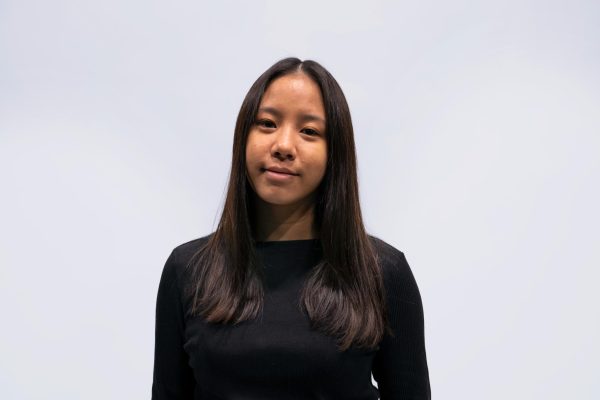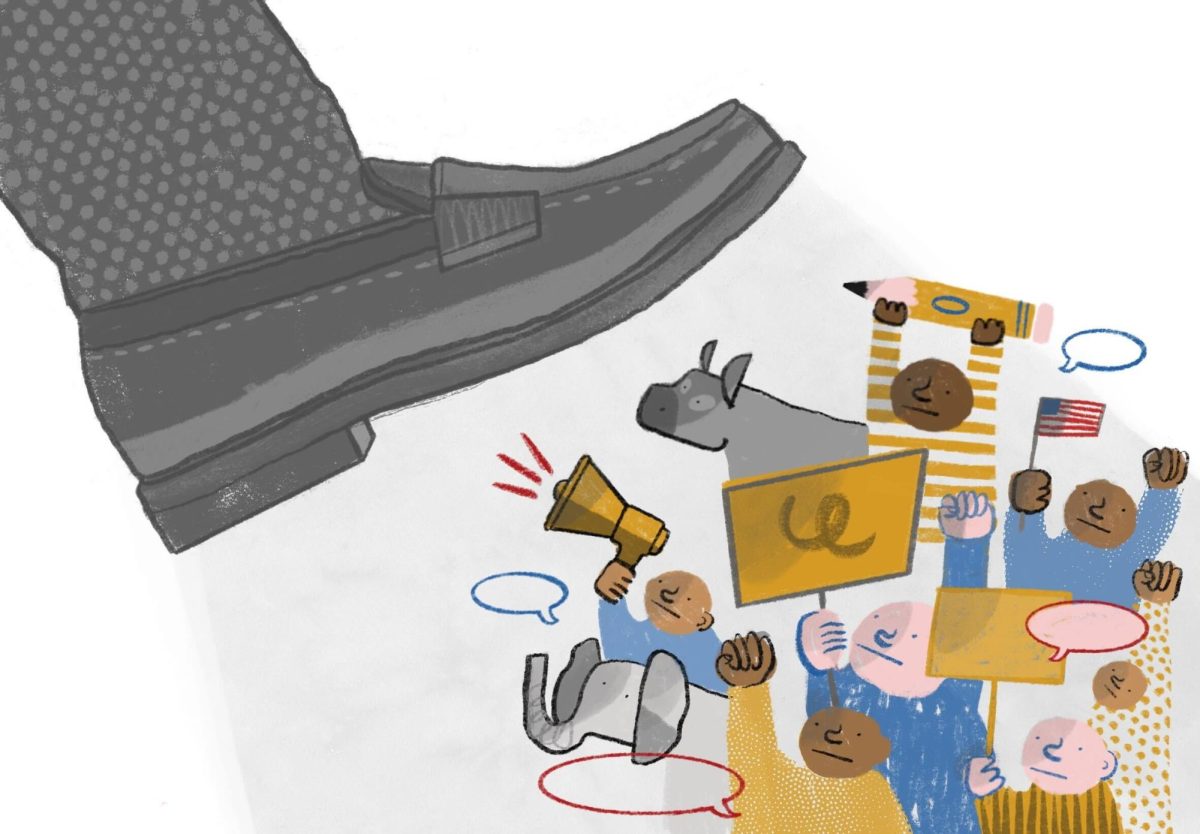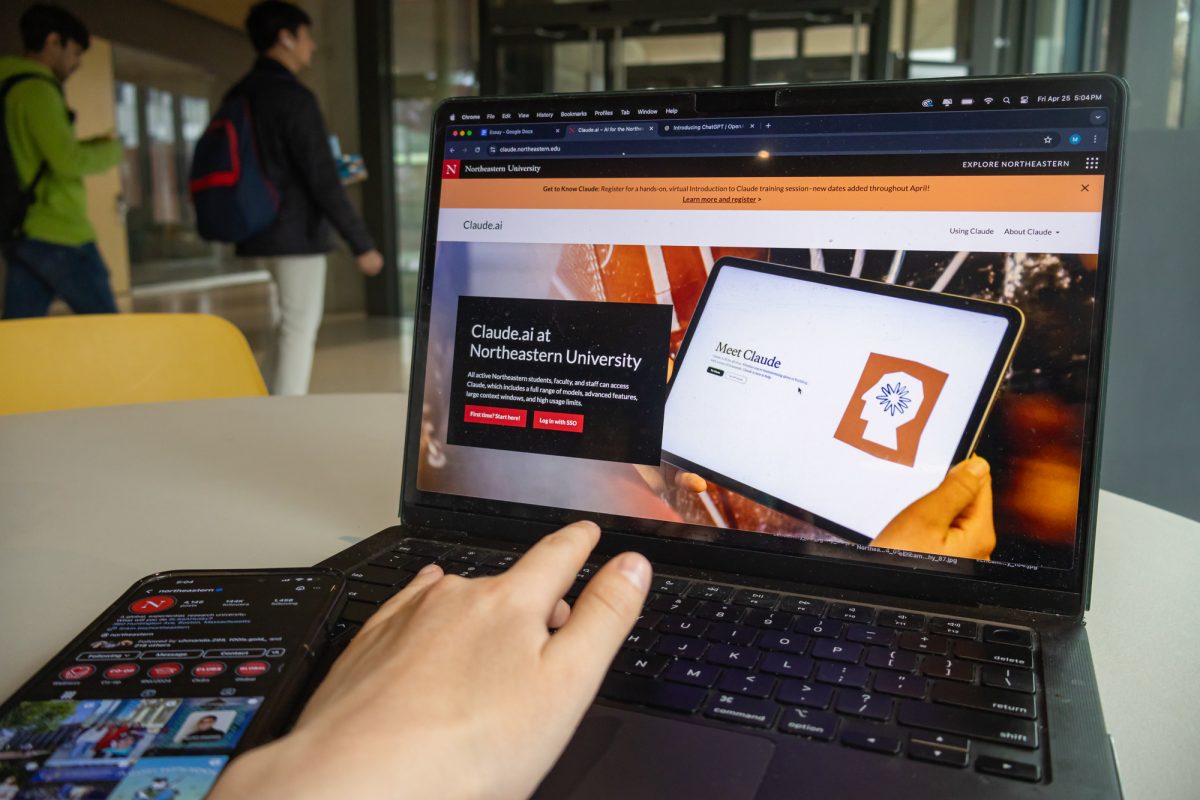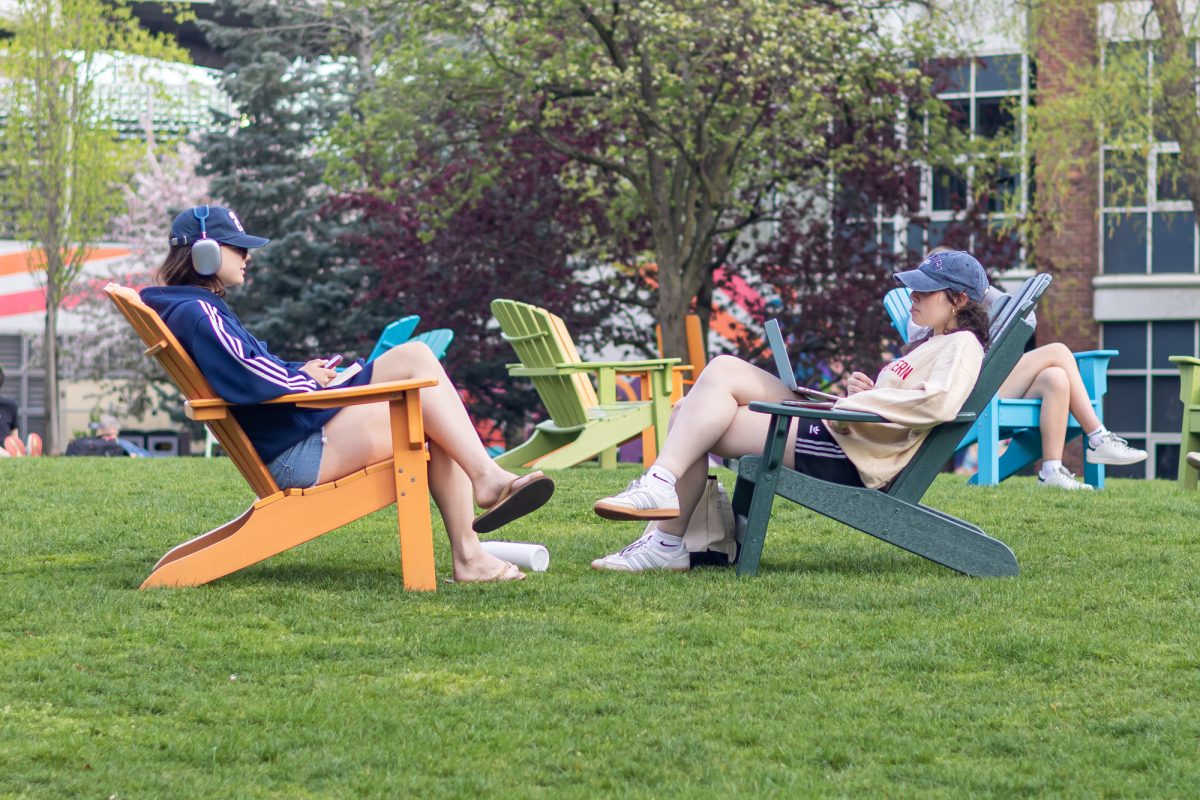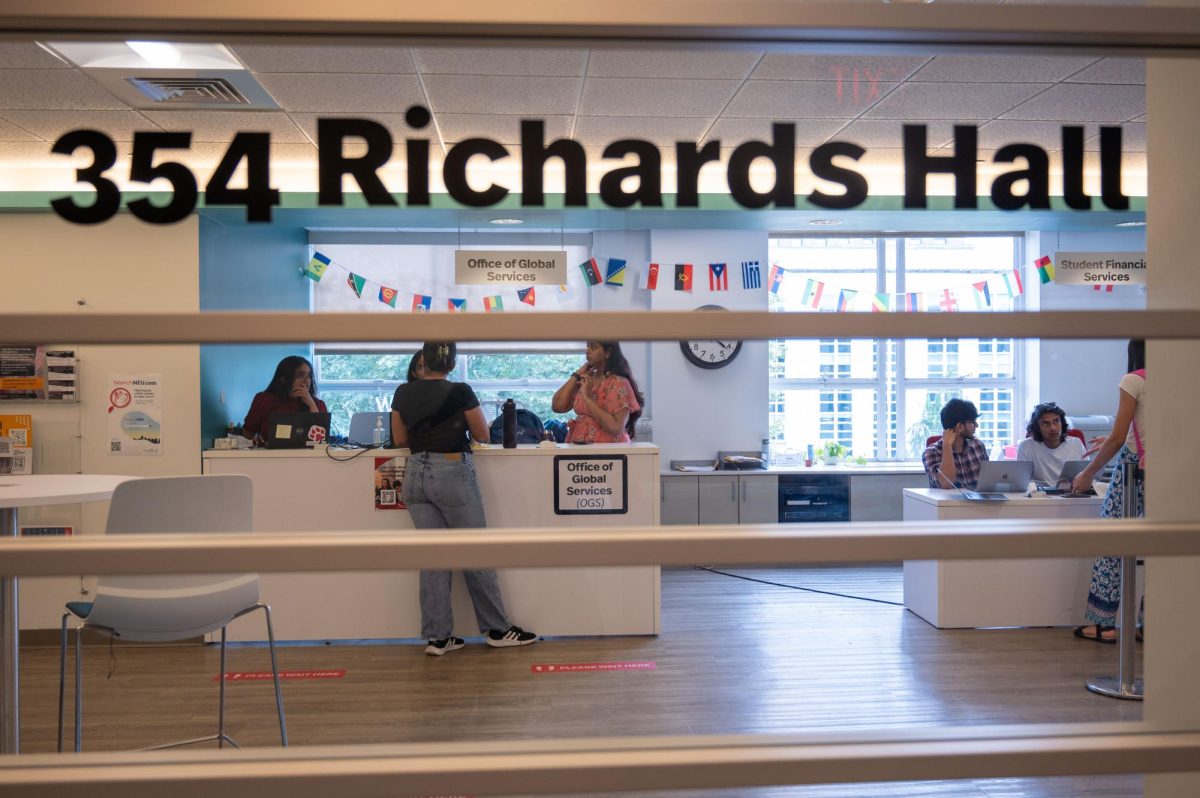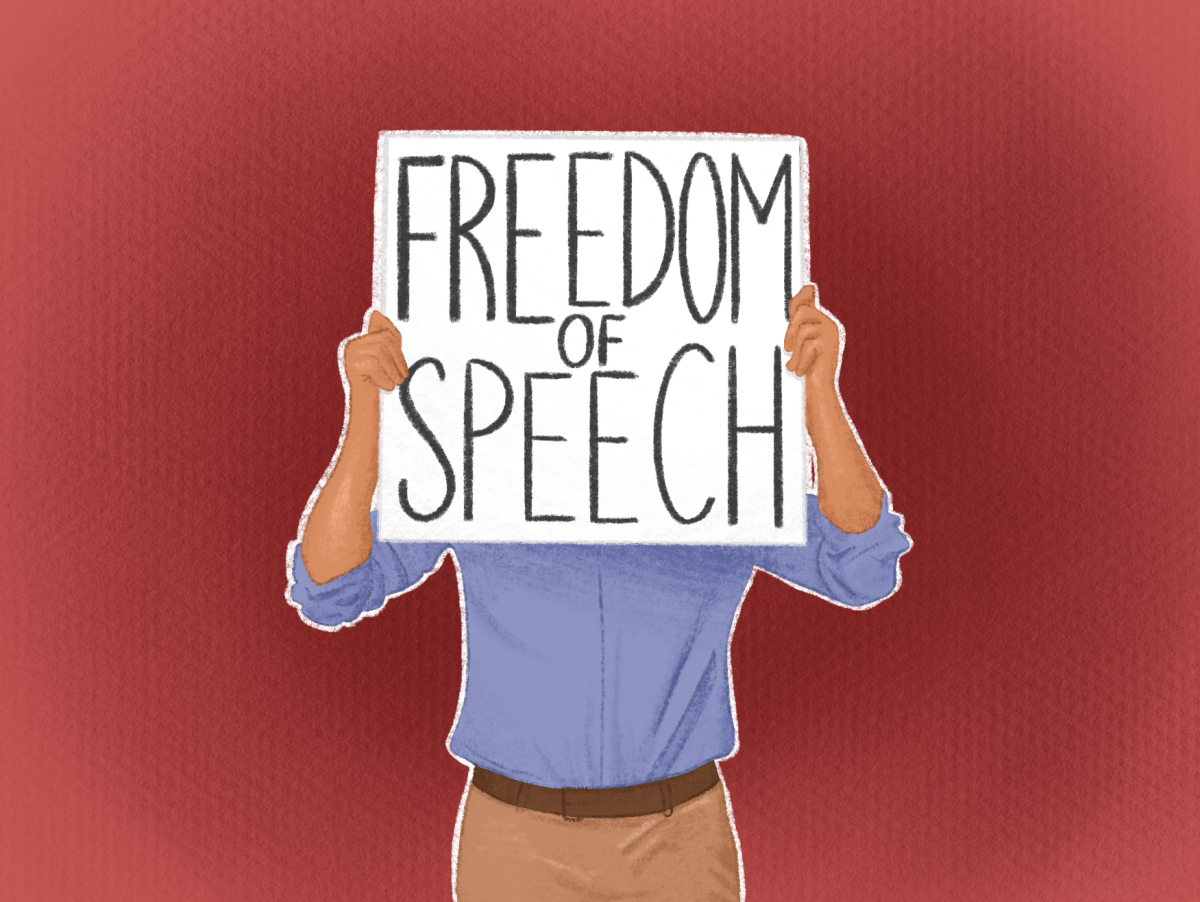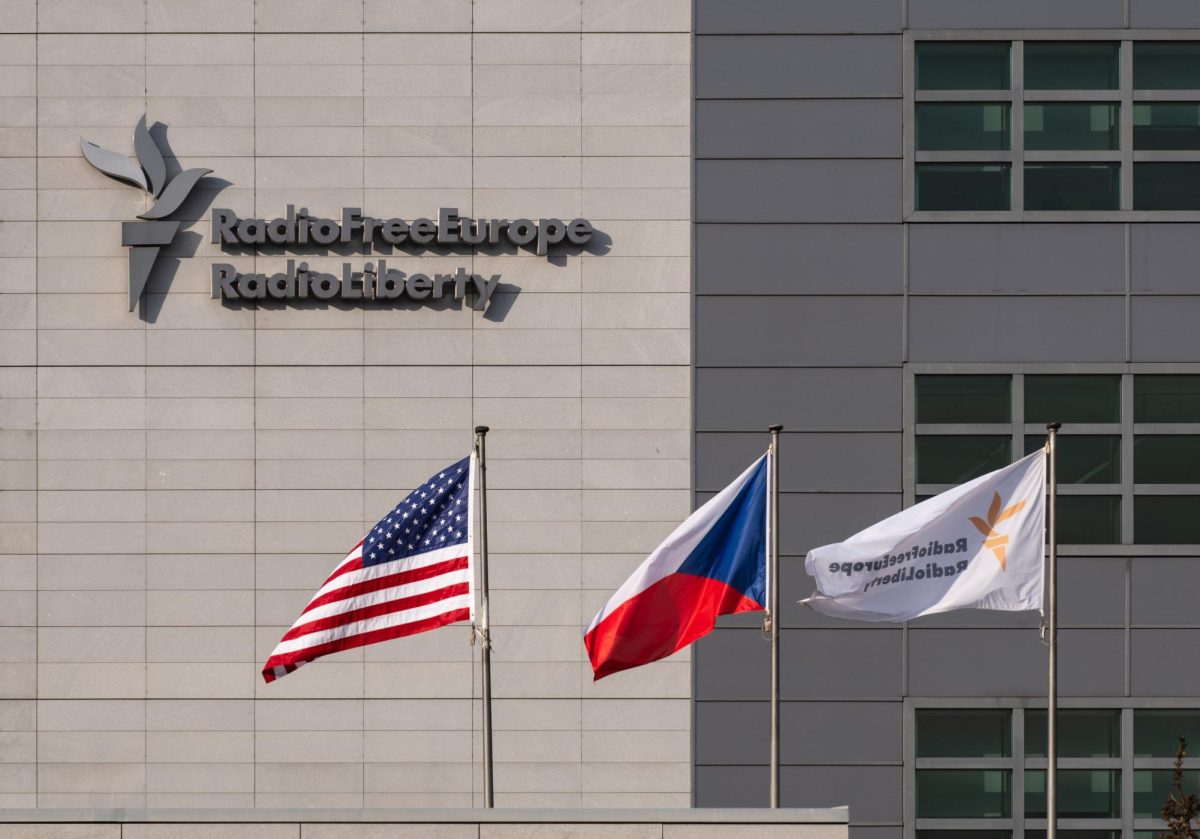Four years ago today, I walked down the airport terminal and eyed the foreign writing sprawled across the advertisements — the curlicues of each letter like vines that were reminiscent of the elvish language from another world. Anticipation fizzled in my stomach at the thought of being in the Republic of Georgia in Eastern Europe, courtesy of my father’s job as a diplomat.
Stepping into the baggage claim area, I saw Georgians for the first time — most of them Caucasian with brown hair, prominent noses and soulfully dark eyes. My family and I barely had to make an effort to squeeze past the people, for they had already stepped aside for us to pass through. I looked down to check if there was anything on my shirt to warrant such piercing stares but found nothing. Now I know what zoo animals must feel like, constantly getting ogled at by passersby for simply being themselves.
My excitement was soon replaced with unease as I twisted my neck — trying and failing to spot another person of a different ethnicity amid the tsunami of people.
To this extent, I remember a very clear incident within my first year of moving to Georgia. I’d gone to a ballet theater with a friend of German ethnicity when I felt the warmth of body heat and came face to face with a middle-aged Georgian woman wearing a crimson red lip. I smiled politely at her and made an effort to squeeze past right when she shifted to the side and blocked my escape.
“Let me take a picture of you both, I have never seen so many ethnicities gathered in one place!” she said.
Before I had time to process her words, she had already snapped a photo and placed her digital camera back inside her purse before scurrying off with a “Thanks!”
In the aftermath of this event, along with similar ones in my time there, I became a hermit and spent most days behind my neighborhood walls, forsaking weekly grocery runs and taking great care to walk alongside the inner part of the sidewalk in vain effort to fade into the woodwork.
While school was a welcoming place, I was the only individual of East Asian descent in the entirety of my high school, which predominantly consisted of Caucasians. Whether my classmates were joking around in foreign languages or constantly making plans to go day drinking, I felt a perpetual divide that prevented me from fully fitting into European culture.
Within a few months, I had been programmed into hyper-vigilance. Whenever I’d catch someone’s wandering eye in public, I despised them for the directed attention, no matter who they were or what the intent was, as if resentment alone had the power to remove me from this place.
It was only at the end of my second year that I finally felt like I belonged. Nothing about my environment changed to accommodate me better, nor did I find a core group of friends who shared my heritage. It was a quiet confidence I possessed upon the realization that we all have one thing in common: our differences.
I began to swap my usual deadpan expression in exchange for a grin whenever I’d catch the attention of a passerby. More often than not, they’d smile back. If someone on the street made an incorrect assumption regarding where I was from, I’d take advantage of that opportunity to brag about the two places I considered home — Taiwan and the United States. In turn, this enabled both of us to acquire a broader worldview regarding our respective countries of origin.
Despite the microaggressions I encountered in my time in Georgia, I realized that these little changes in attitude toward others did not go unnoticed. The more I strove to view the world through a more positive lens, the more kindness was reciprocated toward me — an understanding between people transcending race and background. With time, I began giving myself grace in embracing the totality of all the experiences that made me uniquely myself — attributes that no amount of makeup or a change in wardrobe could conceal.
As time passed, I also garnered an interest in learning about this country’s unique topography. Georgia is primarily surrounded by the Caucasus Mountains, which act as a physical barrier in limiting the country’s exposure to different ethnic groups — hence lessening the spread of various cultural influences. This may have served as a contributing factor with regard to an increasingly “like-minded” way of thinking.
Despite being surrounded by mountains, Georgia is also at a crossroads between Europe and Central Asia, which served as a trading route to countries such as Turkey, Russia and India. Due to the ongoing interactions between these countries, Georgian culture was molded as a consequence of that. I didn’t know it then, but whether it be the khinkali dumplings devoured during dinner or the nearby monastery, cultural influences were ingrained under the very ground I tread upon.
I began to realize that the majority of individuals I encountered had no malicious intentions, with their actions primarily stemming from curiosity about the unknown. Armed with this new understanding, it became easier to forgive and move forward in relinquishing control over the things I couldn’t change.
During my last few months in the country, I began making more trips into the city center, drinking up every last drop of all that Georgia had to offer: its archaic wine culture, the unique sourness of sulguni cheese or the clinking of glass from a lively supra happening in a backyard a street away. I realized I would miss looking out into the distance, seeing shards of the sun strike the mountains that were sprinkled with sheep. In that moment, there wasn’t a thing that I would change.
I departed Georgia with my cup filled to the brim, having put forth effort to learn about its culture and mustering the courage to share a bit of my own.
Mikayla Tsai is a third-year behavioral neuroscience major. She can be reached at tsai.mik@northeastern.edu.




